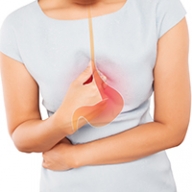Understanding GERD: Symptoms, Diagnosis, and Treatments
Medically Reviewed by Hugh L. Willcox, III, MD, FACS
Dr. Hugh Willcox, McLeod General Surgeon with Pee Dee Surgical Group, explains what GERD is, how it impacts people, and how it can be treated.
Gastroesophageal Reflux Disease (GERD) is a common condition that affects millions of people worldwide.
GERD is a technical term for what most people commonly refer to as heartburn. This condition occurs when stomach acid, or sometimes stomach contents, flow backward into the esophagus causing a range of uncomfortable symptoms. GERD manifests as a burning sensation just behind the breastbone, typically after eating a meal. You may notice this sensation 30 to 45 minutes after eating, particularly if you have consumed something heavy, like pizza, and then lay down.
While occasional acid reflux is normal, chronic GERD affects around 20% of Americans, making it a significant health concern. There is a broad spectrum of severity with GERD, ranging from mild cases that can be managed with lifestyle changes to more severe forms that might lead to damage in the esophagus or even increase the risk of esophageal cancer.
Symptoms of GERD
The most common symptom of GERD is the burning sensation in the chest, commonly referred to as heartburn. This discomfort usually occurs after eating, especially after indulging in fatty or spicy foods. However, some individuals experience this sensation all the time due to continuous stomach acid production. The burning may be accompanied by nausea and an aching feeling in the chest.
Interestingly, GERD can also cause atypical symptoms. In some cases, the acid may reach the lungs, leading to coughing, shortness of breath, or even asthma-like symptoms. If you are experiencing persistent coughing or difficulty breathing alongside the burning sensation, it could be a sign that your reflux is affecting more than just your digestive system.
Common Treatments for GERD
When diagnosing GERD, doctors typically assess a patient’s symptoms and medical history, often supplementing this with tests like an endoscopy or pH monitoring of the esophagus. Once a diagnosis is made, treatment usually starts with lifestyle modifications. Patients are encouraged to quit smoking, reduce alcohol consumption, lose weight, and avoid foods that may trigger symptoms.
Medications are often the next step in managing GERD. The most common treatment involves Proton Pump Inhibitors (PPIs), which reduce stomach acid production. While PPIs are effective in alleviating symptoms, they do not completely eliminate the reflux. If lifestyle changes and medication don’t provide sufficient relief, more advanced treatments may be required.
Surgical Treatments
In severe cases surgical intervention may be necessary. One of the most effective surgeries for GERD is called fundoplication. This procedure tightens the sphincter between the esophagus and the stomach, helping to prevent stomach acid from flowing back into the esophagus. In some cases, an endoscopic approach can be used, tightening the sphincter from the inside using a minimally invasive method.
GERD is a manageable condition, but it is important to understand the symptoms and seek appropriate treatment. If you find yourself frequently experiencing heartburn or chest discomfort, consult with a healthcare provider for an accurate diagnosis and treatment plan. With lifestyle changes, medication, and in some cases, surgery, GERD can be managed effectively, improving quality of life and preventing complications.
Taking proactive steps toward managing GERD can significantly enhance your well-being and help you live more comfortably. Click here to find a doctor near you.
-
McLEOD REGIONAL MEDICAL CENTER FLORENCE
843-777-2000 -
McLEOD DARLINGTON
843-777-1100 -
McLEOD DILLON
843-774-4111 -
McLEOD LORIS
843-716-7000 -
McLEOD SEACOAST
843-390-8100 -
McLEOD CHERAW
843-537-7881 -
McLEOD CLARENDON
803-433-3000



-
McLEOD REGIONAL MEDICAL CENTER FLORENCE
843-777-2000 -
McLEOD DARLINGTON
843-777-1100 -
McLEOD DILLON
843-774-4111 -
McLEOD LORIS
843-716-7000 -
McLEOD SEACOAST
843-390-8100 -
McLEOD CHERAW
843-537-7881 -
McLEOD CLARENDON
803-433-3000
 Find a Doctor
Find a Doctor  Locations
Locations  Services
Services 